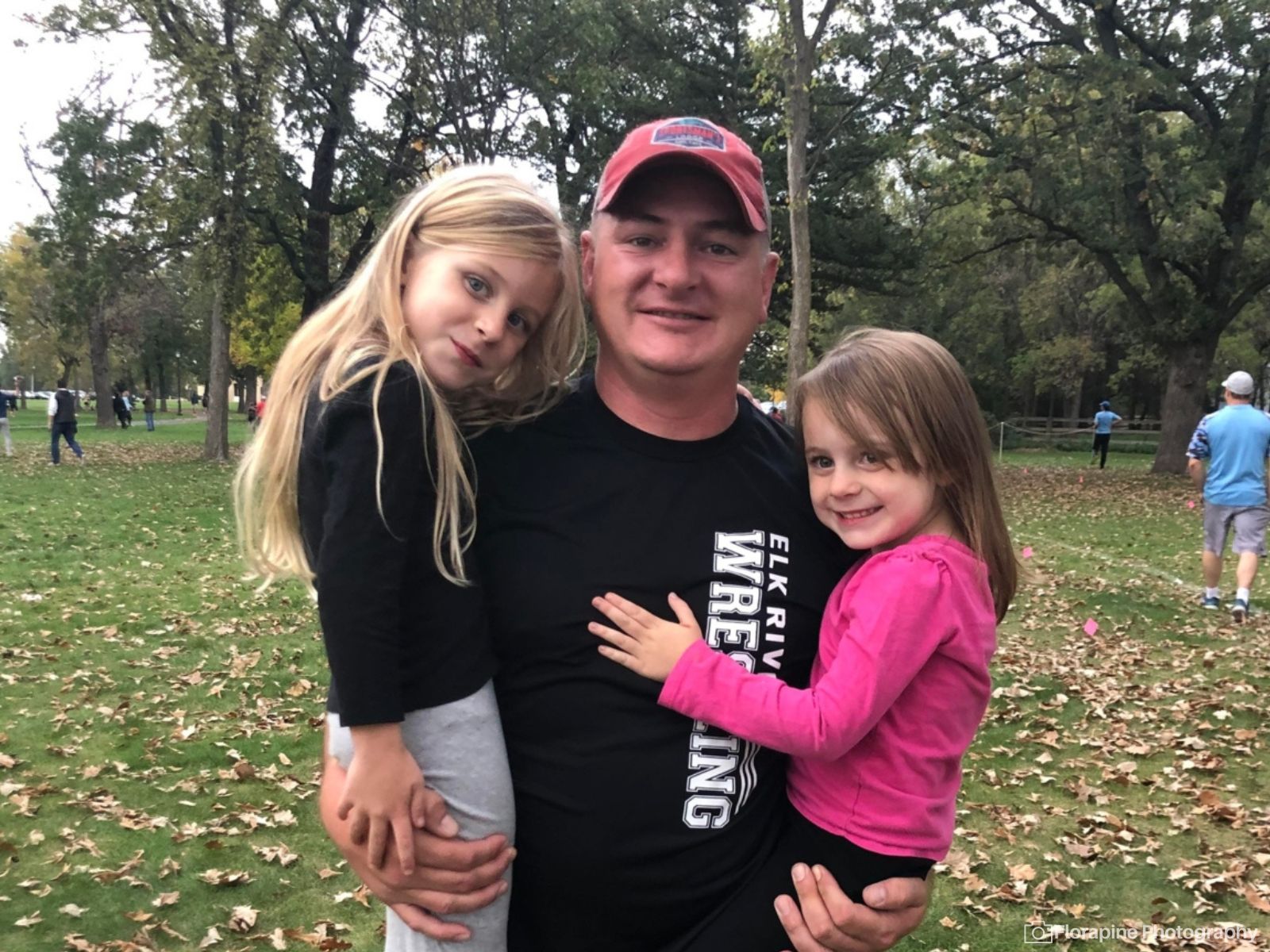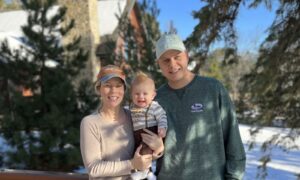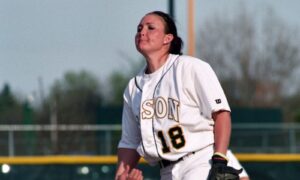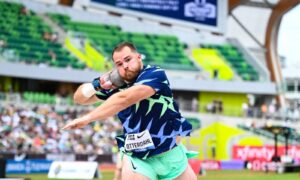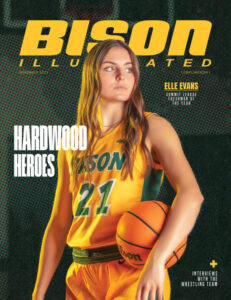Paul Carlson is the last NDSU wrestler to win a national championship, capturing the Division II crown during his junior season in 2003.
While with the Bison, Carlson, 14th in the program’s all-time wins list, was 98-37 overall and also captured a second-place finish at the 2002 national meet and a third-place finish at the 2004 national meet. His impressive resume earned him a nomination to the Division II Jim Koch Wrestling Hall of Fame.
Currently, Carlson, who has four children (Jackson, Connor, Riley, and Avery), lives in Elk River, MN and works at Plaisted Companies. We caught up with him to learn more.
How did you end up at NDSU?
I went to St. Francis High School in Minnesota, just north of the cities. I wrestled and played football there. I was a runner-up in wrestling in my junior year and I was a champion in my senior year. At the beginning of my senior year of high school, I was approached by Bucky Maughan and was recruited by him. I wanted to stay local so I was either going to go to Augsburg, North Dakota State, or the University of Minnesota. I decided to go to NDSU.
What do you remember about those first days on campus and those first practices?
The practices were definitely different than what we did in high school. They were very intense. Part of why I chose NDSU was because I wanted to be a four-year wrestler there. One of my friends, actually one of my best friends, Thad Pike, was recruited there as well. And another friend of mine, Lucas Christiansen, we all actually cracked the team our true freshman year. That was a pretty good feat. They were coming off of a national championship and to make the team and make nationals was pretty neat.
It seems like most people didn’t skip their redshirt seasons back then.
That’s true. We had a kind of unique situation I knew. To be honest, I didn’t know how good I was. I knew I had a shot. I cut my tail off. I remember that. I wrestled 152 in high school, and I was still growing and Thad and I knew we both could make the team at 149 and 157 as true freshmen, which are two of the hardest weight classes to even make. And I told Thad I was a little bit lighter. So I chose to go down, and he went up.
When did you realize you could make an impact here?
When I finished above .500 my true freshman year. I had won some good matches and I knew I could hang with the big guys. I wrestled a guy from Central Oklahoma who was ranked No. 1 in the country and I only lost by one point. A couple of weeks later, we went to the regionals, and I was able to sneak in and qualify. I forget what I placed, but I got to Nationals and my first-round opponent was the same gentleman that wrestled at Central Oklahoma and he was ranked No. 1 in the country. I was beating him five to one going into the third period and he rode me out.
Next year, I took second in the country.
What was that experience like winning a national championship?
Not to be cocky, but that was when I was in my prime. I knew I was doing everything right. Physically, mentally, school-wise, I was on top of my world with everything, and I felt undefeated—like it was mine to lose. I wrestled the same guy that I wrestled in the finals the year before—he and I wrestled three times that year, and I beat him all three times. I never thought I was going to lose.
Where did life take you after you graduated?
I came back to my hometown. My thoughts were to be a teacher and spend my life teaching and coaching. I realized in high school, that’s what I wanted to do. However, I ended up finding a job at this local landscape place and I was working as many hours as I could. I started advancing rapidly within the industry that we were in. We weren’t physically doing the landscaping, we were selling landscape material and stuff like that. But I ended up becoming a manager within six months to a year and just kept advancing and ended up changing positions at a different location. I’m still doing what I’ve been doing the year after I left college. I’m at a new place of employment closer to my work, but now I’m a general manager of an entire corporation. It has been a fun ride. I never thought I would be doing what I’m doing.
What did you like about what you’re doing here?
I tell this to my employees and to other staff members— what I do now is a lot like teaching, and I’ve always been a coach or a teacher. I still coach now. But it’s having a group of employees, 50 to 100 employees, and you have to get them to perform. It’s a lot like coaching, you’re just dealing with a different age group.
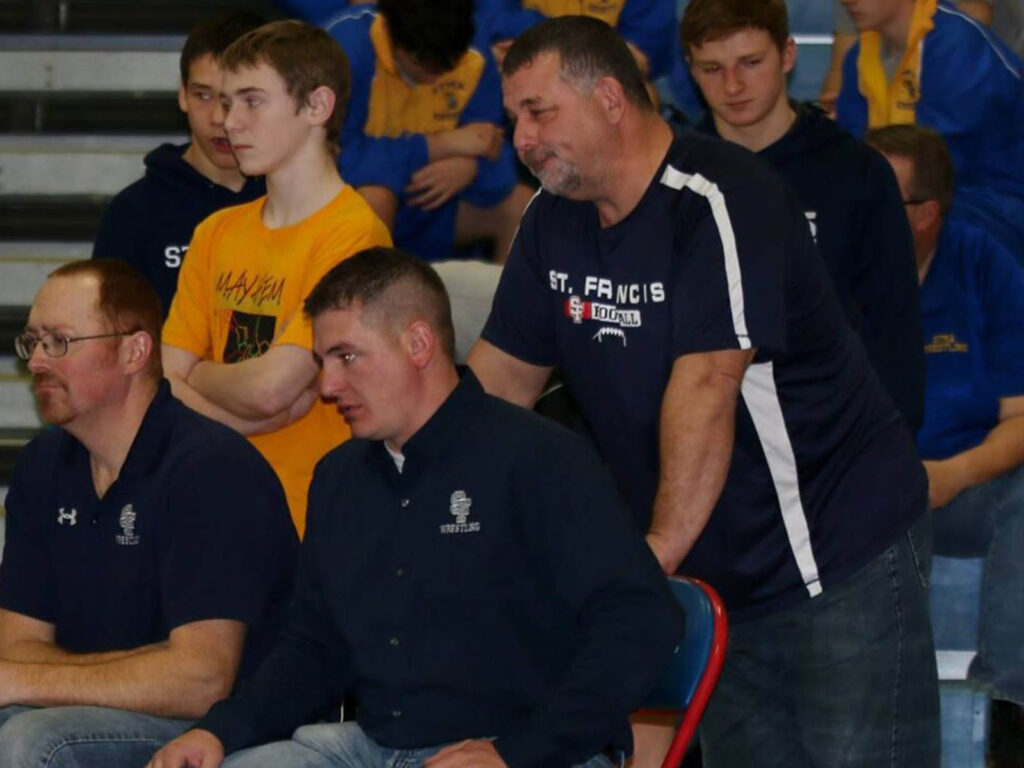
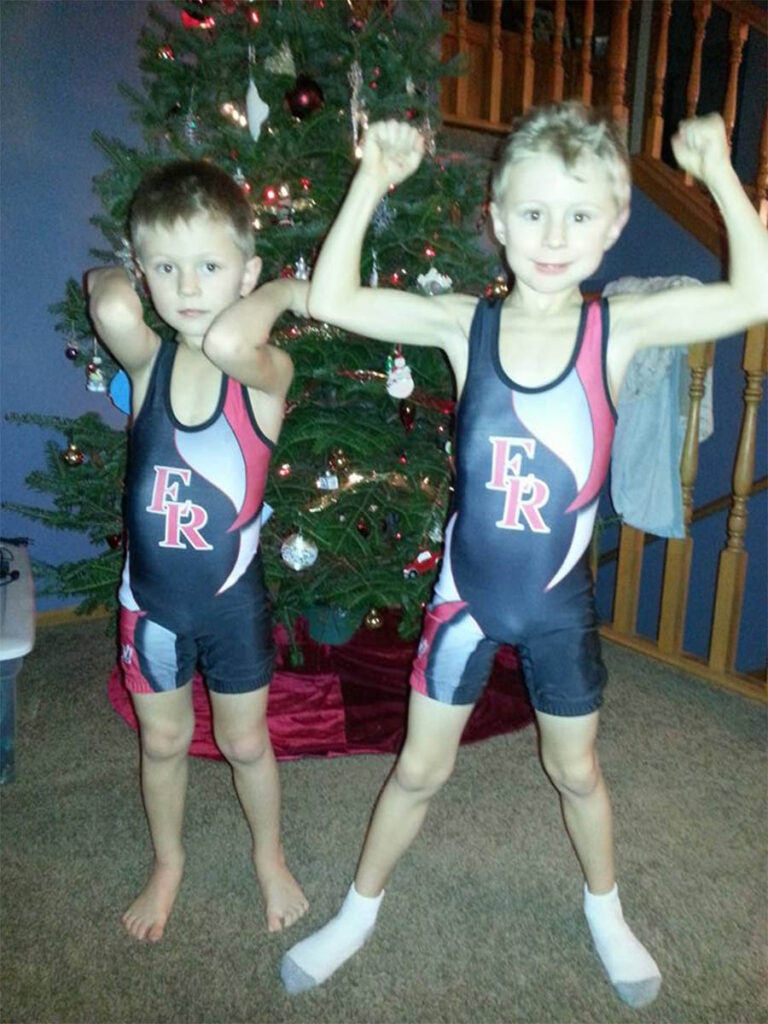
What level do you coach at?
I did a stint for about five years of coaching at the varsity level as an assistant coach at my alma mater in St. Francis. And I moved with my current wife at the time to Elk River, which is a town nearby. I started coaching there. Now, I’ve been at the youth level for nine years, since my son joined. I’ve coached every year since I’ve come back. Just not as much as I used to now that I have four kids.
What do you like about the coaching?
Just giving back. When I was young, I was so gung ho—I wanted to teach all the best kids. But my outlook has changed. Not every kid is going to be a national champion. Every kid might not win a match. But if they’re in the room, and they’re practicing hard, and they’re giving it their all, that’s the stuff that I want to coach. Seeing the gradual steps is important. To me, wrestling is one of the hardest sports. You have to go out there and perform individually and if you lose, it’s just yourself losing, not a whole football team. That can be tough to swallow. For a lot of kids, even my own, it’s tough to tell them it’s not all about winning and losing.
What has your experience been like being a father?
That’s a game-changer. I always expected to be a dad. The hardest part hit me probably three or four years ago when I had my boys in wrestling. They’re little and they don’t care if they’re good or bad. They just want to participate. But it was really difficult for me to be a dad and a coach at the same time. My son currently doesn’t wrestle now—he does cross country and football and baseball—but it took me a while to understand that some of these kids aren’t going to be world-class athletes. And I had to swallow some pride with that, and learn to be a dad more than a coach. That was kind of an eye-opener for me.
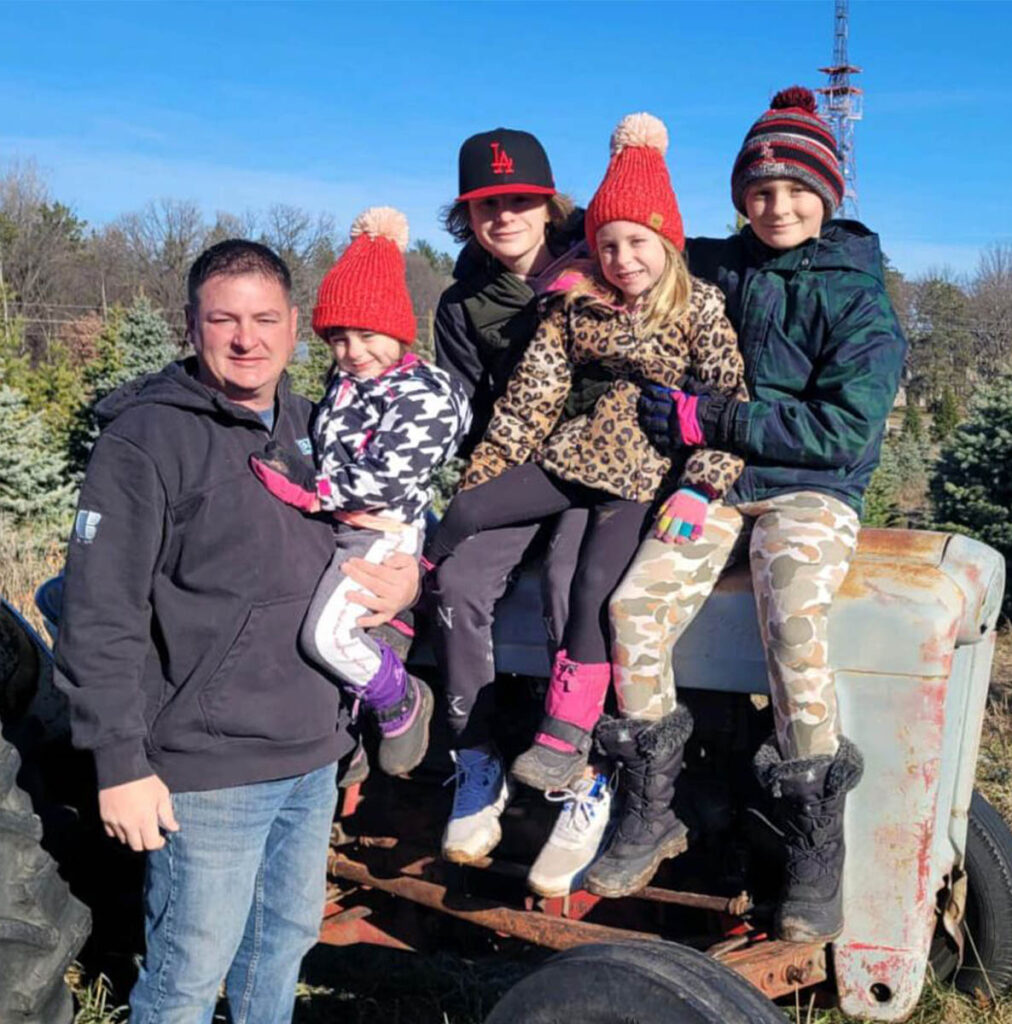
What other types of activities do you guys do together?
We get to the lake as much as we can, whether it’s fishing or playing on the water. My two youngest daughters aren’t into hunting—they’re too little. But my boys and I go hunting when we can or explore the woods.
What else do you like to do in your free time for fun?
I guess when I’m alone, I’m either fishing or hunting. Work is a big part of my life, but I enjoy it. There are a lot of times when I’m not working, I’m working, if that makes sense. I have a really big family and we’ve all stayed pretty local. So I mean, there’s usually not a night off. I have eleven cousins and each one of those cousins have about two to four kids so we really like to hangout as much as we can.

